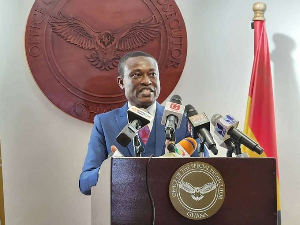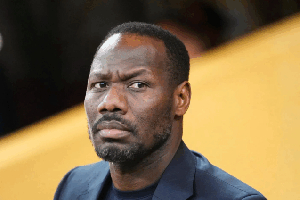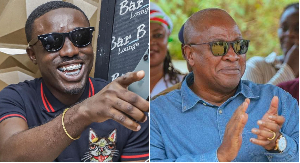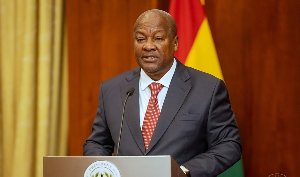Africa’s burgeoning mobile-banking industry has gained fresh momentum with governments boosting payments through phones, a measure aimed at curbing the coronavirus by reducing the physical exchange of cash.
Kenya is ramping up its use of technology platforms offered by Vodafone Group Plc’s M-Pesa, Airtel Kenya Ltd. and Telkom Kenya Ltd. since the pandemic to disburse aid directly to businesses and individuals using mobile money rather than through banks or food parcels. Ghana on Wednesday also started pumping stimulus to at least 100,000 micro-, small- and medium-sized enterprises using mobile money.
Pioneered by Vodafone’s Nairobi-based Safaricom Plc in 2007, mobile money has become an indispensable part of how Africa’s 1.2 billion people pay for goods and services, buy funeral cover or borrow money, without a smartphone. Now, the need from governments to find a quick and safe way of sending funds during the pandemic is underscoring the service’s increasingly systemic role.
“Government disbursing monies via M-Pesa shows high integrity has been accorded to the platform,” said Tracy Kivunyu, an analyst at Tellimer Ltd. in the Kenyan capital, Nairobi.
While Europeans are shunning cash for cards over hygiene concerns, some African nations lack the infrastructure to rely only on plastic. As restrictions on movement to curb Covid-19 infections prevent customers from accessing cash, more are turning to mobile money to fill the gap. After Kenya’s partial lockdown started in March, a million new users joined M-Pesa, taking subscribers to 25 million, or about three quarters of Kenyans over 15.
Mobile money
In Ghana, mobile money purchases reached a record in March, according to central bank data, while a cash shortage in Zimbabwe means 90% of transactions are done digitally. Nigerian startup digital bank Kuda said it opened more accounts in April than the prior three months combined. Togo, a nation of eight million, was able to distribute emergency financial support to 500,000 people, mostly women, in less than two weeks using mobile phones, according to the International Monetary Fund.
Top market
“These changes, triggered by Covid-19, have enabled the acceleration and scaling of cashless and digital economies,” said Serigne Dioum, head of mobile-financial services at MTN Group, the continent’s largest wireless carrier. “They support our ambition to transition to an end-to-end platform, creating a digital market place, connecting consumers to businesses, and businesses to businesses.”
Mobile money is the fastest-growing source of income for wireless-network operators like Johannesburg-based MTN and the African units of Newbury, England-based Vodafone Group. Sub-Saharan Africa has more mobile-money accounts than anywhere else in the world, with about 396 million at the end of 2018, or 46% of all customers, according to the GSMA, the global mobile-operator industry group.
Heightened reluctance to use potentially virus-spreading cash will probably continue once the economies rebound, Peter Ndegwa, the chief executive officer of Safaricom, who took the post in April, said in an interview. M-Pesa is used by more than 37 million people across seven African countries.
The crisis has also quickened the next phase of M-Pesa’s development: a bigger push into financial services for Kenya’s small- to medium-sized businesses. Expanding revenue streams into business-related payments will help generate higher margins from M-Pesa’s ecosystem, said Tellimer’s Kivunyu.
Safaricom has 173,000 merchant partners who can receive payments over M-Pesa and has the technology to enable more services once regulatory approvals are granted.
Shining example
“In terms of employment, the small business sector is the lifeline of this country,” Ndegwa said. That led to a partnership between Safaricom and Visa Inc. to explore and develop digital payment systems to further expand M-Pesa’s reach. It also ties into Safaricom’s strategy of coaxing more people onto 4G devices, which would let customers access more sophisticated financial services. Most Kenyans don’t have internet-enabled phones, so half of M-Pesa transfers are made via text message.
In Ghana, companies other than mobile network operators can now get licenses, which could prompt a drop in prices with more competition, said Archie Hesse, CEO of Ghana Interbank Payment and Settlement Systems Ltd. Ghana is disbursing part of its 600 million cedis ($104 million) Covid-19 stimulus package via mobile money, said Kosi Yankey-Ayeh, executive director of the National Board for Small Scale Industries.
The start of MTN’s mobile-money service in Nigeria in August, along with initial approvals for Globacom Ltd. and 9Mobile, means a sleeping giant is awakening in Africa’s most populous country, long served only by banks. Uzoma Dozie, CEO of Sparkle Ltd., a Lagos-based digital bank that began operations this month, expects to reach half a million customers in the next 18 months.
“This pandemic has been a defining moment for mobile-money providers, said Akinwale Goodluck, head of Sub-Saharan Africa for GSMA. “It indicates that Africa can lead the world in digital financial transformation toward a cashless society.”
Business News of Saturday, 27 June 2020
Source: Bloomberg













